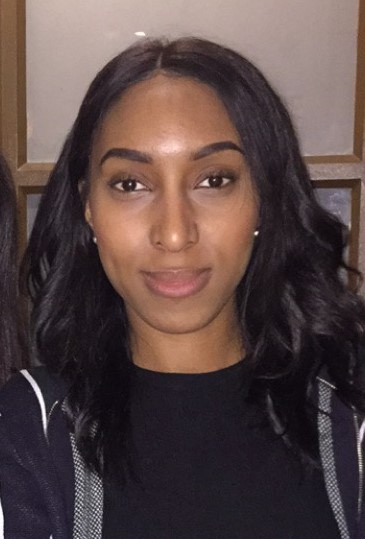IMSR PhD researcher Amarah Anthony recently attended an in-depth public engagement training course. Her attendance was supported through Wellcome Trust Enrichment Funding awarded to the DAISy-PCOS research programme. Read Amarah’s blog review below & get in touch with her if you’d like to know more about the training:

I had the pleasure of participating in a 3-day Public Engagement Masterclass organised and funded by the Wellcome Genome Campus, UK. This course was great for any public engagement enthusiast – be that an early career starter with little experience of public engagement or an experienced researcher looking for new ideas to revamp their public engagement endeavours.
The theme of this year was inclusivity and equality – an apt topic when considering public engagement. The course kicked off with 3 thought-provoking presentations, each addressing different challenges that researchers may face when attempting to formulate engagement ideas which were; building trust between researchers and the community, the disparity between the attitude toward researchers from ethnic minority backgrounds compared their white counterparts, and creative approaches to public engagement. It is always beneficial to be reminded that building trust between researchers and the community should be the first and foremost priority. The speaker highlighted how researchers must ensure that the motivation behind any public engagement activity is not merely for the benefit of the research team/ organisation but equally valuable for the community that is being targeted. The speaker finished by emphasizing that we, as researchers, must ask ourselves ‘why are we doing this event?’, ‘How will the community gain from this engagement?’ and if the incentive is not gainful for the community, then the motivation needs to be rethought before any plans are made.
My favourite talk of the course was given by a speaker who clarified the difference between inclusivity and equality. The talk was very interactive, and participants were able to input thoughts and ideas via a shared cloud space. The talk also featured explanatory images, which illustrated the speakers point with extreme clarity. I found this, and I’m sure many of the other participants would agree judging from their feedback, to be an education within itself on how to demystify any topic. This is definitely a technique I will be sure to use in future public engagement ventures.
An important aspect that was covered during this three-day masterclass was how to plan events post covid and how to adapt to the ‘new normal’ of virtual spaces. A common concern amongst participants was how to keep audiences interested during virtual events. There was brilliant discussion on this topic and many ideas shared between masterclass event organisers and participants. Giving communities the option to vote on whether they would prefer virtual or in person events was one of the suggestions discussed. Running virtual and in person events in tandem with each other was also another great suggestion from the wellcome team. Needless to say, this is of course only a snippet of the content delivered during the masterclass and aspects such as funding, pitching ideas to superiors and methodical planning approaches were also covered.
It is difficult to pinpoint aspects of the course that I was not pleased with, however, it would have been nice if the masterclass was able to be conducted in-person on the Wellcome Genome campus as in previous years, as opposed to virtually. Of course, this could not have been avoided due to covid restrictions. There were a few inevitable technical difficulties throughout the duration of the masterclass but the organisers adapted extremely well to the situation, and considering this was the first year the masterclass was provided virtually, I think they did a fantastic job keeping participants engaged. I think the masterclass itself served as a great blueprint for all attendees on how to successfully plan virtual events in the future.
